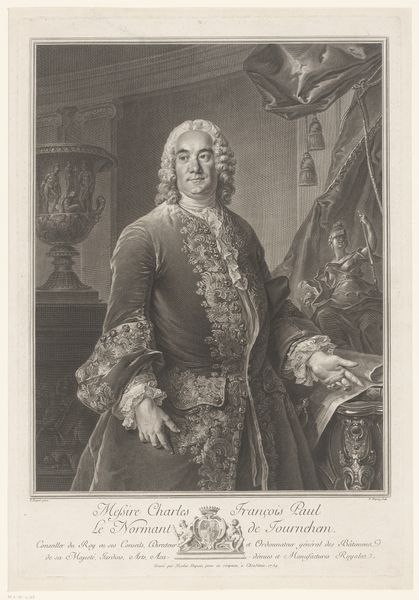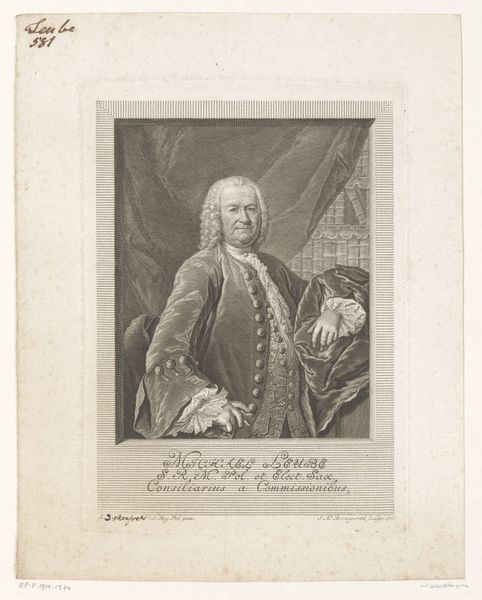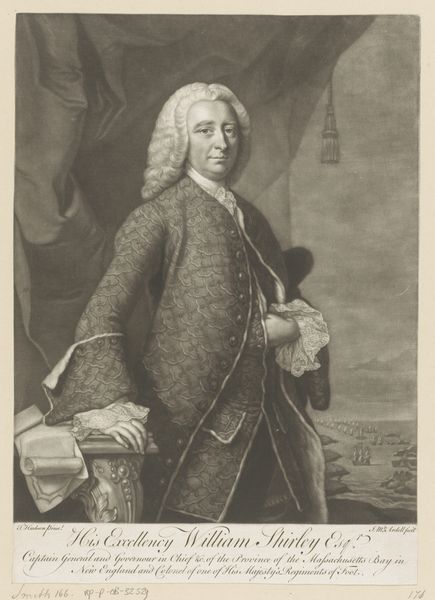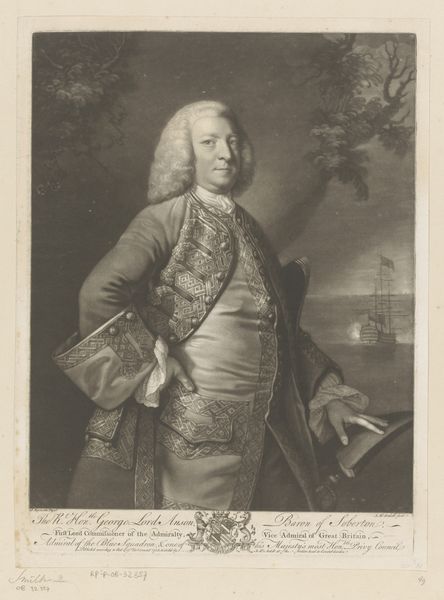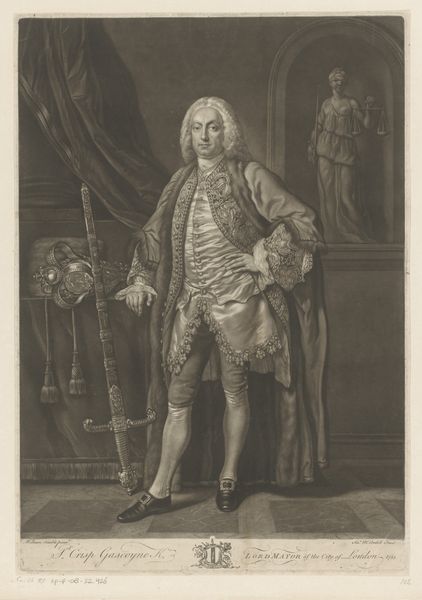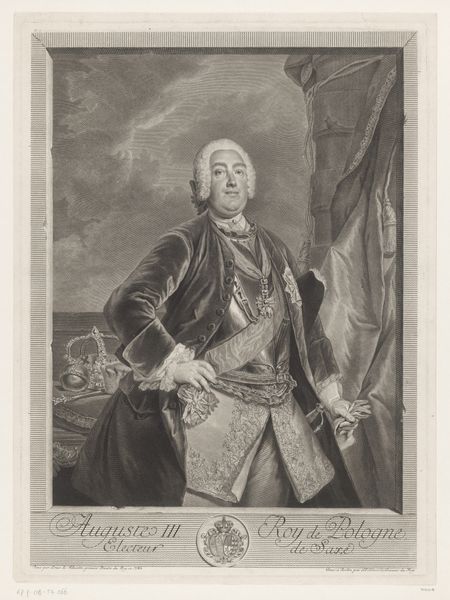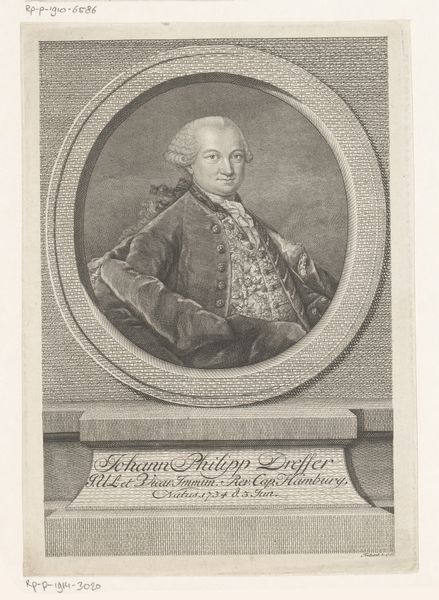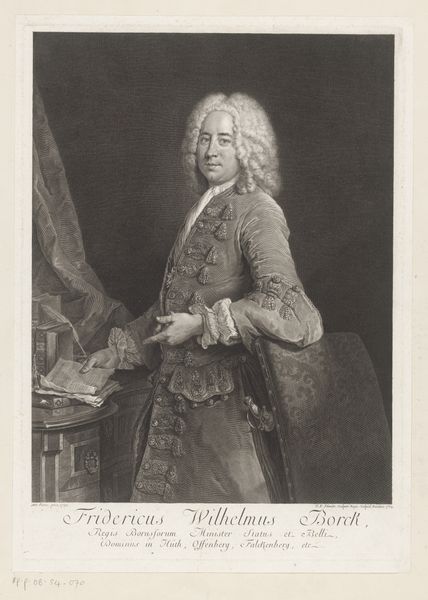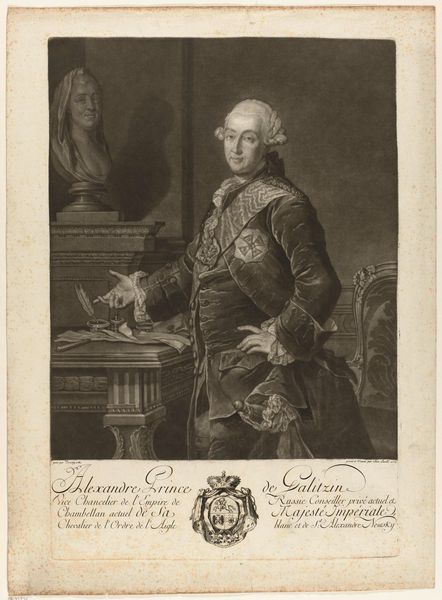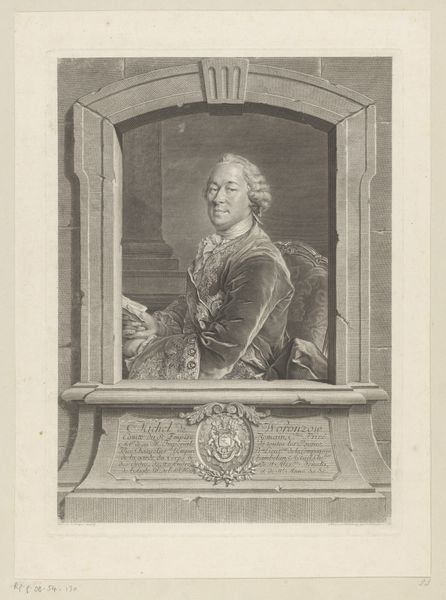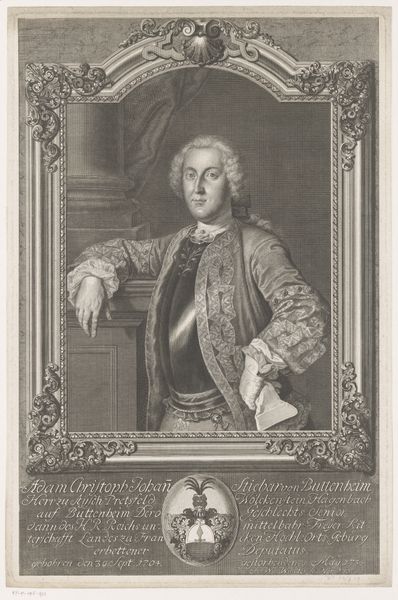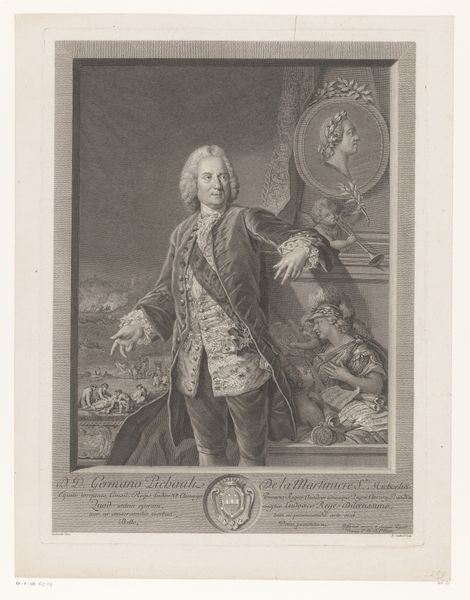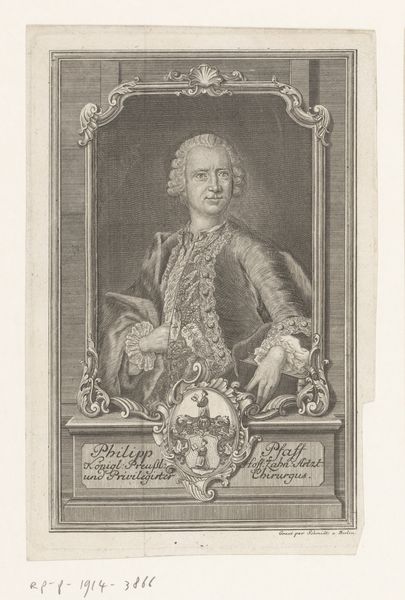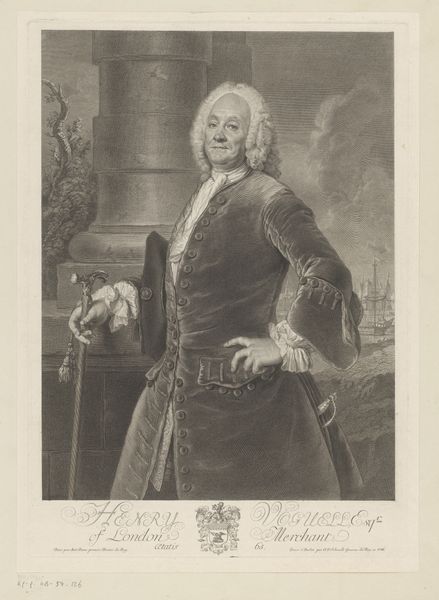
engraving
#
portrait
#
baroque
#
old engraving style
#
pencil drawing
#
19th century
#
history-painting
#
engraving
Dimensions: height 463 mm, width 324 mm
Copyright: Rijks Museum: Open Domain
Pierre Etienne Moitte created this print of Henri-Camille de Beringhen in 18th century France. Beringhen's attire and surroundings speak to the social and institutional structures of the time. Note how Beringhen's powdered wig, velvet coat, lace cuffs, and aristocratic insignia all visually communicate his noble status. The column and formal garden in the background reinforce this impression of wealth, power, and privilege. This image was made during the height of the French aristocracy, prior to the revolution. It acted as a status symbol for powerful people connected to the court of the King. Prints like these were often commissioned and distributed to reinforce social hierarchies and political alliances. The image tacitly affirms the power of the monarchy and the established social order. To understand this artwork, the historian might delve into the archives of the French court or the records of noble families. By understanding the social and institutional context, we can better understand the complex politics of imagery in the 1700s.
Comments
No comments
Be the first to comment and join the conversation on the ultimate creative platform.
